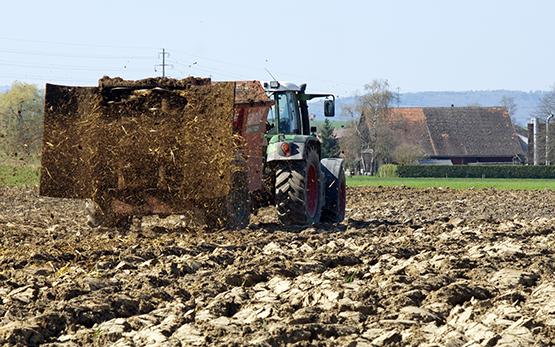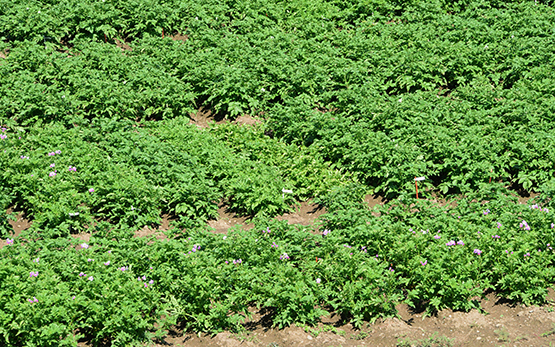New Guidelines for Fertiliser Application
The 'Principles of Agricultural Crop Fertilisation in Switzerland' (PRIF) are primarily a tool for agricultural advisers, but also serve to help farmers with practical questions concerning the fertilisation of agricultural crops. In addition, the PRIF guidelines are used by researchers, political decision-makers and for legal enforcement. Agroscope is currently preparing a new edition of the guidelines for 2017. For the first time, fertilisation data for field crops, forage crops and special crops are presented in a complete work in modular form.
The new edition of the PRIF is coming soon in 2017
Stable Microbial Diversity in the Soil
There is enormous species diversity in the soil, and different land-use types and sites harbour different microbial communities. This is shown by the recording of the state of agricultural soils in the reference measurement network of the Swiss Soil Monitoring Network (NABO) by means of biological parameters (NABObio). Over four years, the microbial communities of the thirty NABObio sites on field and grassland and in the forest proved to be relatively stable.
The NABO symposium of November 2016 (in German)
New Sampling of Accounting Data
Since 2016, Agroscope’s agricultural income has been determined on the basis of a random sampling. From a certain size onwards, any farm can now be asked to make its accounts available, on a voluntary basis and in an anonymised form, to the Farm Accountancy Data Network. This approach leads to a significant improvement in the representativeness of the sample, compared to the previous, non-random selection of the farms.
Information on the ‘income situation’ sample







